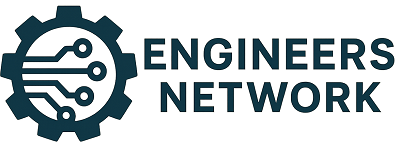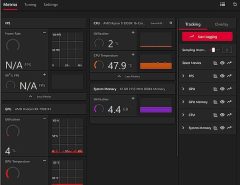There is something even worse than being a computer engineering student (or equivalent degree) who does not like to program and believe that you will spend your life doing it. And is to be a computer engineer, that you do not like to program, take half a professional life doing it and know that you have the other half.
In this profession, and in this country, 90% of those who do not like to program spend their whole lives programming. And 90% of jobs related to computer engineering that are not programmers end up occupying people who did not study computer science. That’s the way things are in this profession.
The fact is that lately, and increasingly, when finishing a talk at an event, or when finishing some class at the University, someone comes and asks me: and what can I do to be a computer engineer and not finish all the life programming?
Make it clear, first of all, that programming is a very respectable activity, and one of the most important activities that a computer engineer can dedicate to (or how we now end up calling with the mess of the degrees). But even being a great dedication, there are many other professional dedications for a computer engineer. Other dedications for which it is necessary to recognize that, unfortunately, few universities prepare their future engineers.
As I do not have the magic formula of professional realization in computer science, but if you want to help in what you can, the only thing I can leave you are my personal experiences, things and qualities that in these years I have observed in other computer engineers that I have known and they have had professional success without dedicating themselves to programming (and without leaving the world of computer science).
The following non-technical tips are not a guarantee, they do not ensure professional success as a computer engineer that does not program, but in my personal experience, those computer engineers that I have met with professional success without programming complied with several of the next.
Continue Reading: Motivation: Engineering in General and Computers in Particular
– Learn to speak English. I do not say that you sign up for the language school, or any other academy, I say that you learn to speak English. Nor do I talk about knowing how to read and more or less write, that I take for granted. I mean knowing how to start a conversation, understand and talk. In my case, the first years of my professional career I did not need English for almost anything beyond reading. But there comes a day when, if you do not have English, you only start subconsciously to avoid situations that require English. And to lose opportunities. The problem is that this takes time, and if you have not prepared it long before, when you need it (and here nothing is reported with much time) you do not have time to learn.
– Specialize in an area, to stand out in it, and to study, read, study, read, etc. Everything that is requested in this type of work (on audit, security, quality, etc.), things that surely nobody has taught you, nor will it teach you. As I said I do not remember who on twitter, we already know that the University has its problems … but today no one prevents you from watching a MIT webinar, YouTube videos, blogs, forums, and so on. And this is increasingly so, because things go very fast and the only way to follow them is by yourself, without waiting for someone to tell you.
– Select your first job very well. It gives me a lot of fun when I hear people say things like: “For pasta I chose to work programming SQL instead of going to a scholarship in a company specializing in xxx, and now I regret it and it will take me a lot to straighten my career. ” So that’s it. Do not mortgage your entire career to charge a little more during the first years.
– Do not believe that “since I am an engineer (recently graduated) I already deserve a position as Project Manager (and here I am sitting to see if they call me)”. In this profession this does not work like that. And unfortunately I know more than one that follows that philosophy of passive waiting for years … and has been programming for years. The sooner you realize that you have to move less time you will lose. To give you a job before you have to show that you know how to exercise it, acting as such, and not just showing a title.
– Travels. Whenever you can, get into a project that touches travel, and the more distant and different the language … the better. Some people are bad at traveling, but the culture and experience that other environments give you is not taught in the best software development course. And if you learn another language … I do not even tell you anymore. Working in another country (I say work, not going to a conference one day) and / or with people from other countries is one of the best professional experiences. To cite my case, to date I have touched 4 countries (Chile, Colombia, Venezuela and USA).
You may also like to read wolowtube
– Relationship. Get involved and participate in groups of people who are dedicated to what you would like to do. Nowadays with so much 2.0 you have it easy. Who does not get into a forum, LinkedIn, twitter, etc., related to what he would like to do is because he does not want to. Identify who are the most outstanding people and learn.
– It facilitates that they can know you. Create a CV on the Web, orient it to the job you want, and keep it alive. You can go from creating a LinkedIn to mounting a Web. But mount something already to put your CV. That of sending the CV in PDF begins to be history. Today you do not send the CV to the people, it’s the people who go and look for you, look at Google, Linkedin, etc., and visit your CV, and if there is no CV … bad. And as a corollary to this point: take care of your online reputation.
– Develops non-technical skills. Nobody is taught at the University to speak in public, make a presentation, summarize an idea, etc. But all these kinds of things are essential. No matter how good a technician you are, you will not be worth anything if you do not know how to transmit what you know. So do not just focus on the technical, and start reading about how to speak in public, make presentations, etc.
Tags: computer engineer, programming





Leave a Reply